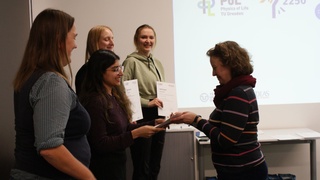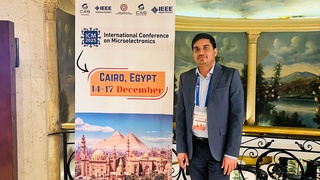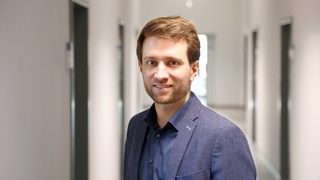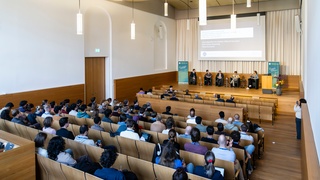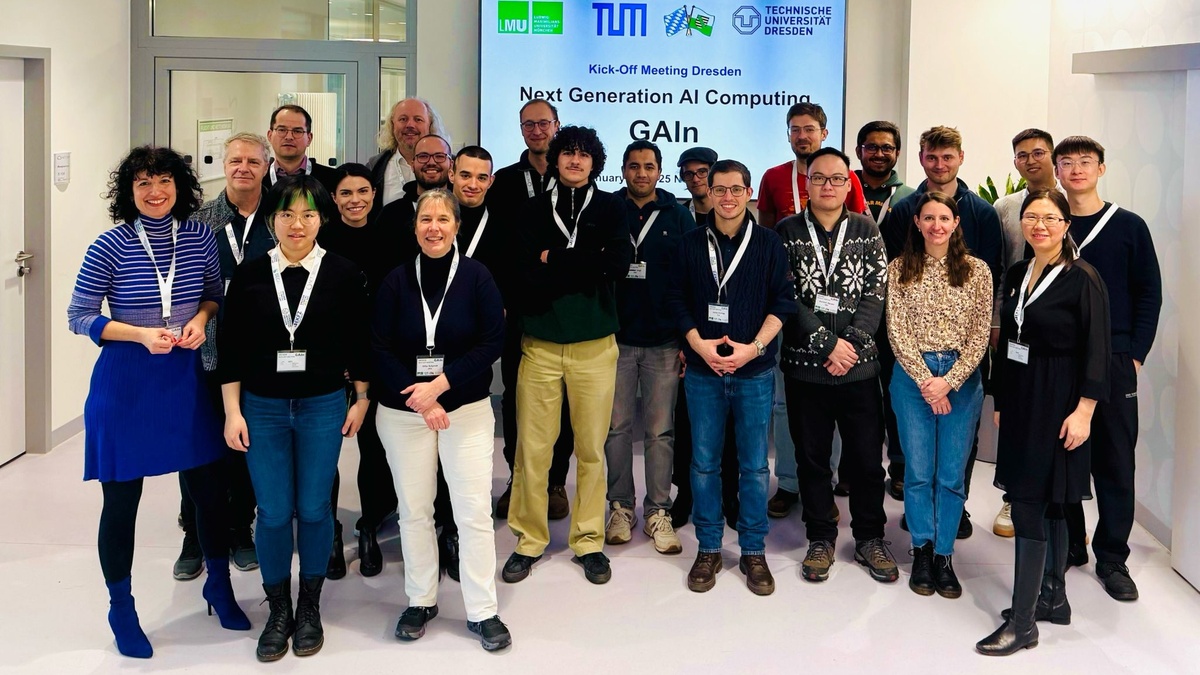
February 6, 2025
Cooperation With RelAI in the AI Project GAIn
Together with Frank Fitzek, Gitta Kutyniok (RelAI) and Holger Boche from TUM Munich University of Technology, Stefanie Speidel hosted the kick-off meeting of the Saxony-Bavaria AI project GAIn – Next Generation AI Computing. The pilot project tackles new AI hardware and software concepts to reduce the energy consumption and increase the reliability for different applications such as surgical robotics. The cooperation across federal states will not only strengthen Germany's technological sovereignty but contributes to the international leadership role of Saxony and Bavaria in central computing technologies.
In collaboration with scientists from the TUD Dresden University of Technology, Ludwig Maximilian University of Munich (LMU), and the TUM Munich University of Technology, the pilot project GAIn focuses on developing innovative AI hardware and corresponding software concepts. The project aims to address key challenges in energy consumption, predictability, reliability, and legal implementation. A core objective is to significantly reduce the energy consumption of AI-based applications while enhancing their predictability and reliability for different applications such as surgical robotics.
Building on the foundation of the Cluster of Excellence CeTI, the 6G-life research hub, and the Konrad Zuse Schools SECAI and Excellence in Reliable AI (RelAI), the project has now officially launched. With the support of the Free State of Saxony and Bavaria, it has secured funding of six million euros until 2027, including three million euros from TU Dresden. Through its interdisciplinary collaboration and strong institutional network, the GAIn project will lay the foundation for the next generation of AI systems. By addressing critical challenges in energy efficiency, reliability, and legal compliance, the project will drive forward technological progress while strengthening Germany’s position as a global leader in AI and computing technologies.
[Excerpts from the TUD press release; AI project "GAIn" with TUD participation aims to propel Saxony and Bavaria to an international leadership role in computing technologies, and of the National Center of Tumor Disease Dresden (NCT); GAIn (2024 - 2027)]

